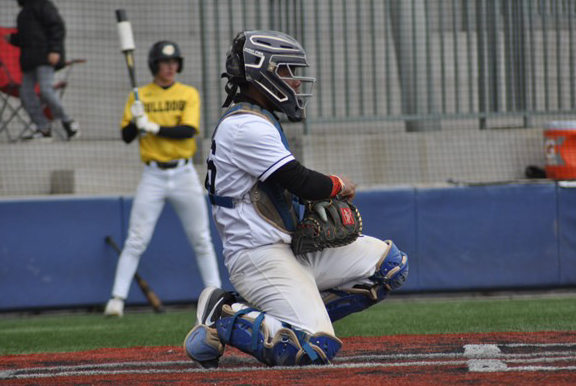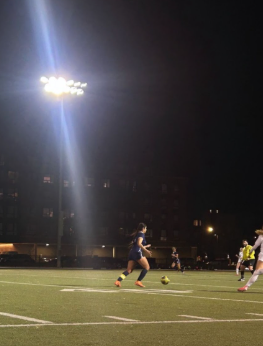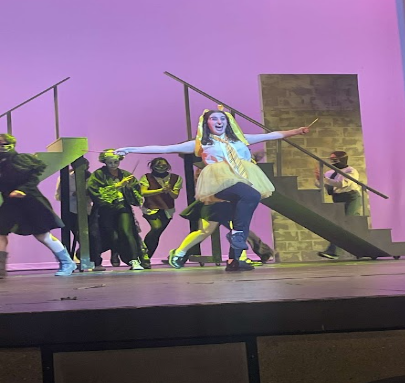I’m hooked up to half a dozen monitors, balancing not making eye contact with each person too long and trying not to fall over. The air smells of a generic antiseptic, and the lights flickering overhead are only adding to my anxiety. And just like that, it’s over. One, two, three, four, five. One, two, three, four. One, two, three. “Ruby?” One, two. One. I’m told I have POTS: Postural Orthostatic Tachycardia Syndrome. A wave of relief courses through my body. I’m not faking it or exaggerating; it is not simply my anxiety. Yet, I am only a sophomore in high school. The phrases “there is no cure” and “you may never get better” provoke fear within me. During the car ride home, there is silence; my mother and I are in shock. I claw at the heart monitor that has been placed on me—the adhesive is upsetting my skin. I try to not let myself disassociate; I have homework to do.
Why me? What did I do to deserve this? Will I feel like this forever? Wait, what about my future career? Stop. Focus, Ruby; you’re in chemistry right now.
Everything in my body, from the blood vessels in my lower legs desperately trying to constrict to the neurons firing off in my brain to create a thought spiral, is screaming at me, “STOP YOU NEED TO STOP.” I don’t listen for a while; that happens to work out for me, not suffering the consequences of fainting or falling and hitting my head.
Suddenly, a year and a half has passed. I’ve experimented with treatments, and I agree to add another medication to my already complex routine to give relief to my severe anxiety, unaware of the consequences. I fill my grandma-esque pill case that I have bedazzled to make it feel less depressing with small, yellow pills, hoping to finally be at peace. Again, weeks later, something feels wrong. Feeling faint, I shake my wrist. My Apple Watch illuminates my pulse—the number 34. In a matter of minutes, I’m on the phone with my doctor, and the key medication managing my chronic illness is taken away from my regimen due to its interaction with the anxiety medication.
For over two months, I lay in my bed, mostly confined to it. Staring at my wall, I wait for it to respond and say something. Past the point of exhaustion, each breath laborious, and in pain from being in bed all of the time, it no longer feels as though my life is progressing. I only get a taste of the teenage experience through movies and Instagram stories. I haven’t physically lost many people, yet I am intimately familiar with grief. I have grieved my past self, the one who wasn’t sick and had no doubt about being able to achieve her dreams. I miss the bubbly, talkative girl who always enjoyed long hikes or walks, going out of her way to bring small gifts to friends, and loved going anywhere at any time. All I want is to get back to school. Most times, when I stand up, I pass out. I’m tired of being tired, but I’m alive and determined.
I changed my interactions with others and they now mostly took place online leading me to a shocking discovery one day, my chronic illness was TikTok viral. While my sister had diagnosed me with my condition from a short TikTok video weeks before I received an official one, I underestimated just how large the chronically ill community was on the app. For the first time in my life, I could see people talk about experiences that mirrored mine and how they had gone through flare-ups to the same severity as my current one but ultimately got better. This only added to my determination to get out of mine.
Tapering off my anxiety medication in order to retake my old medication is frightening. I experience severe withdrawals and am going through a long period of derealization, but I know that in order to move forward in my life, I must get through it. Once entirely off of it, I am able to start taking the medication that best manages my chronic illness again, and it is as if a light switch has been turned on, and I suddenly begin to feel better. Despite the fact that I previously had been getting upwards of twelve hours of sleep a day, drinking plenty of water, and more, progress was not being made. Relief finally begins to arrive.
Experiencing such a dramatic hit to my routine has completely altered how I live my life and my values. I now know that even the seemingly mundane moments, from walking the train while it’s freezing out and my breath ruins my makeup to sitting with friends in the lobby before school complaining and saying we want to go home, are things I should appreciate more and will eventually miss. From friends going out of their way to include, care for, and encourage me when I was not feeling well to my parents spending countless hours helping me communicate with teachers and comforting me as I grieved what my body was formerly capable of, my comeback in spirit, health, and growth are their shared pride.
Despite the challenges, I’m grateful to have a diagnosis for what is often an unrecognized and underdiagnosed condition. My experiences, though uncommon in the general population of teenagers, are unfortunately not that different from what many of those with my condition experience. It could be your friend, your family member, it could be the random person you see on the train, it could even be you one day who ends up going through some form of chronic illness or pain, which is why I feel that living in the present is so important. Blending in the cliche of ‘you never know what someone is going through’ is especially important to me. Without being lucky to have received a diagnosis, I may still be a scared fifteen-year-old, worried I’m lying to everyone about very real symptoms I’m experiencing. My progress would not have been possible without it, and it has been crucial to my well-being. Ultimately, I’ve seen the fruits of my labor, which has been incredibly rewarding.
My eighty-year-old grandmother being in better shape than me, spending a triple-digit number of hours with doctors or doing treatments and learning how to balance coursework while barely able to balance standing up; my experience in high school has most definitely been atypical, but it has taught me things that will serve me for the rest of my life. Lessons of adaptability, tenacity, and compassion now guide my choices, no matter how small, and I am much more empathetic to others and what they may be going through. I am also much more grateful, knowing how hard I have fought to be where I am.
I know not to wear a normal sweatshirt to the doctor, if I want to, it needs to have a zipper so that my arms can be accessed. I know not to cross my legs or speak otherwise my blood pressure will be misread. I know which of my veins are best and which will roll around once a needle punctures my skin, causing them to blow. I know to never forget to take my myriad of medications, or I may pay for it for multiple days. I know the severe heart pain I experience is not a heart attack, despite always feeling catastrophic. I know not to overstretch myself or sit in the same position for too long, or my hypermobile body will react with almost unbearable pain. I know to ignore the stares and scowls I get when I use a wheelchair in the airport and as I pre-board. I know that I need to add some sort of positive ending to statements I make about my suffering to make those around me feel comfortable with what I experience. I know that sometimes I make the people I love scared or uncomfortable and that it can be hard to be around me. I know to not blame myself anymore.
People say that my illness made me stronger, but that’s not true. I have not become stronger because of it; I became stronger because of myself. I put in the effort, pushed through the symptoms, and chose to grow from my experiences. My illness is not the reason for my learned resilience; I am.




